This project, funded through the Getting Research into Practice (GRIP) programme, used co-production and creative methods to inform the design of an educational resource for people with lower back pain in Sheffield.
Funded by:
Getting Research into Practice (GRIP) funding programme through National Institute for Health Research Collaborations for Leadership in Applied Research and Care Yorkshire and Humber (NIHR CLAHRC YH).
Team:
Rebecca Partridge
Partners:
Rick Webber – specialist physiotherapist, Sheffield Teaching Hospitals NHS Trust
Cheryl Grindell- Sheffield Teaching Hospitals NHS Trust.
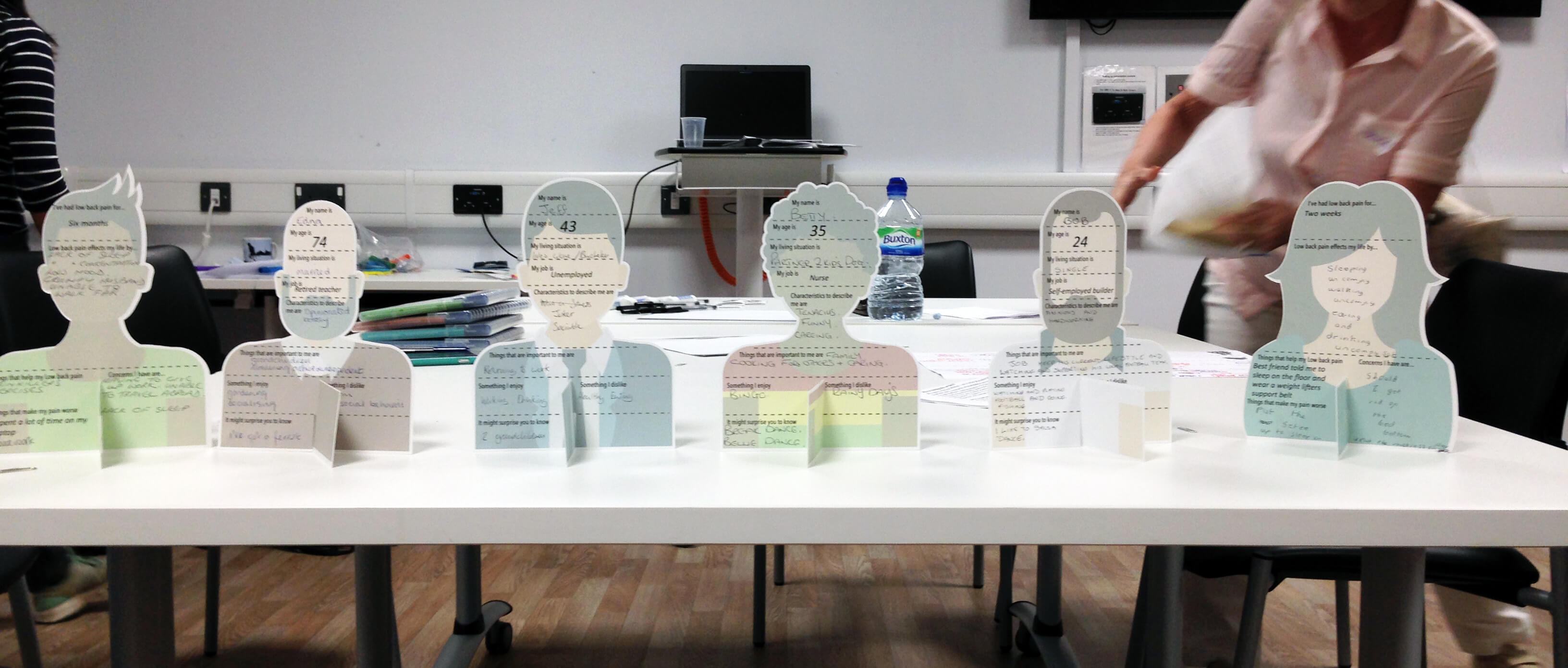
Current UK NICE lower back pain guidance recommends patient education to improve self-management, however current evidence on how best to provide this education is unclear. Beliefs associated with a traditional biomedical view of lower back pain can
be a barrier to recovery.
Education that helps people reframe their problem as complex and multifactorial may help patients accept and engage with more positive attitudes and behaviours. Passive information rarely leads to these behaviours.
The creative co-design process applied in this project provided a different approach to the traditional top down method of research and intervention development. It encouraged a collaborative problem-solving approach and fostered a non-hierarchical inclusive approach to knowledge mobilisation.
Stakeholders involved
CLAHRC-SY
Sheffield Teaching Hospitals NHS Foundation Trust
PhysioWorks Sheffield
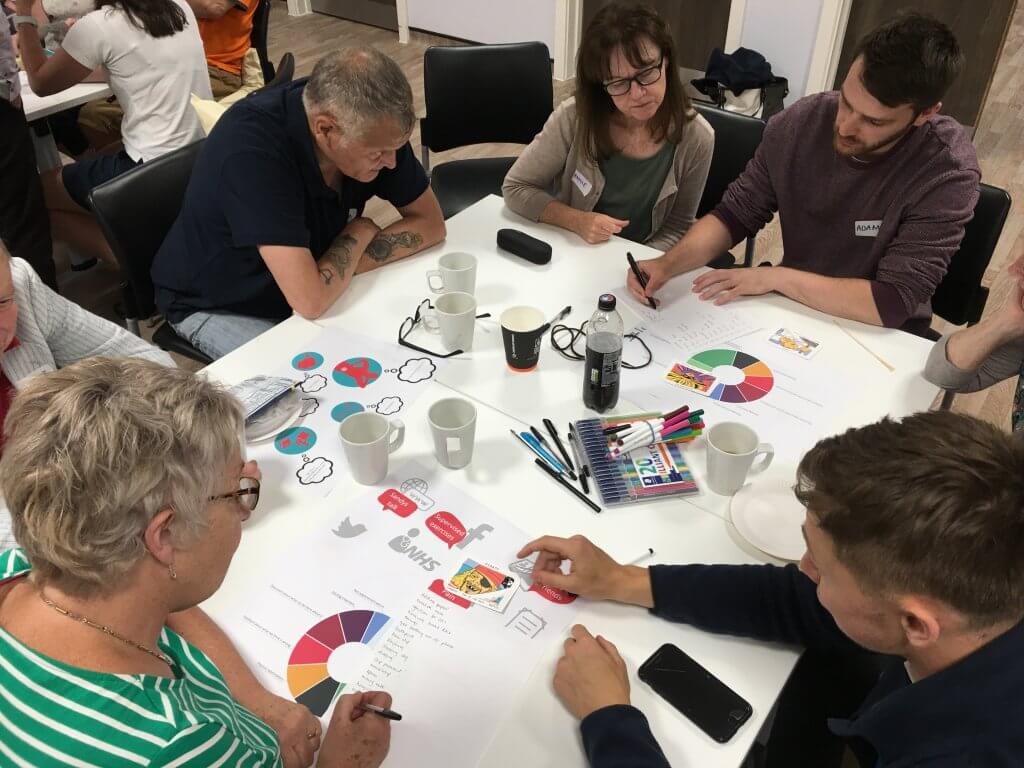
Methods used
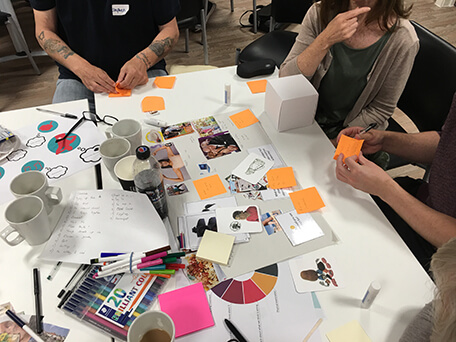
To develop the education resource, service users and providers were brought together in two co-production workshops. In the first workshop, we explored the lived experience of back pain. Participants were invited to share their experiences to generate a shared understanding of the complexities of living with and managing back pain.
The second workshop focused on idea generation to support and manage some of the complexities highlighted in the previous workshop. From these ideas, a series of prototypes were developed and tested within Sheffield Physio works.
Project Outcome
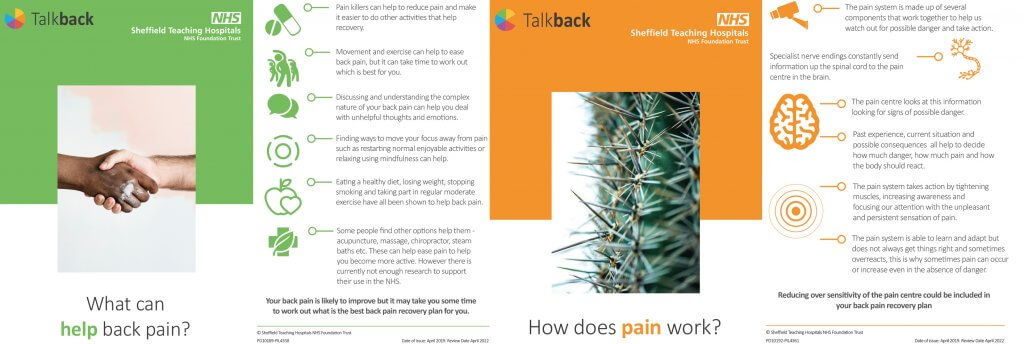
New educational resources were developed and have now been implemented within PhysioWorks, Sheffield. The resources include a patient workbook and a series of information leaflets. All these resources are available physically and online.
As a result of patient feedback during the workshop, an improved interactive education session was developed to align to the new resources.
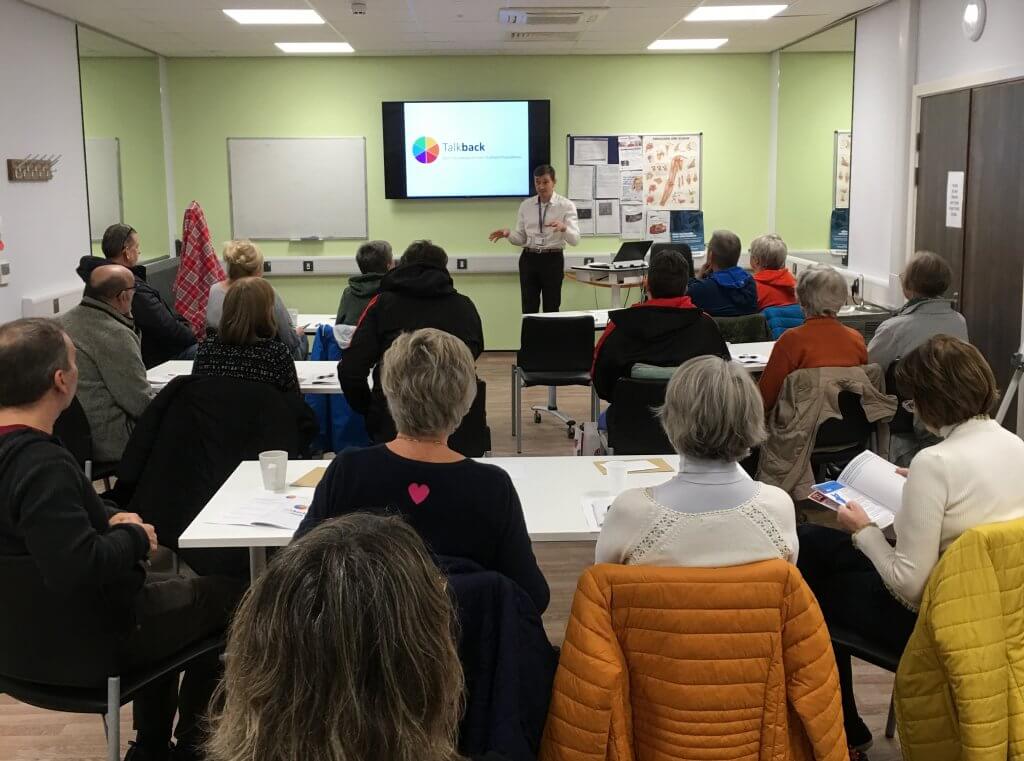
 to top
to top
